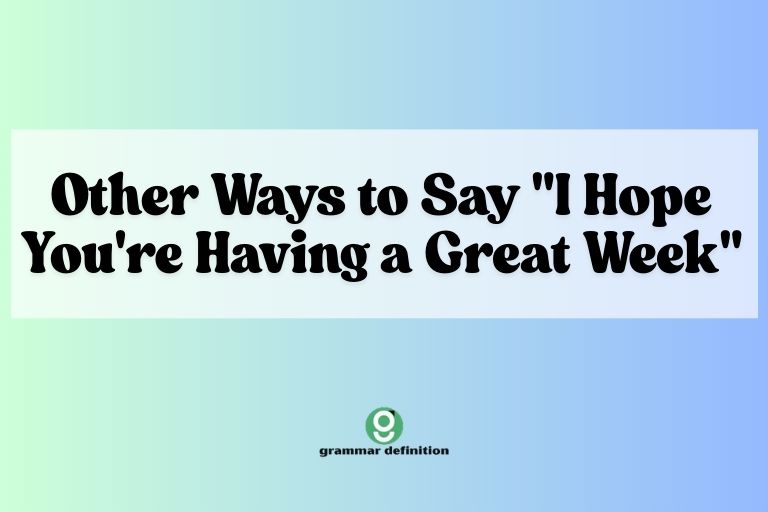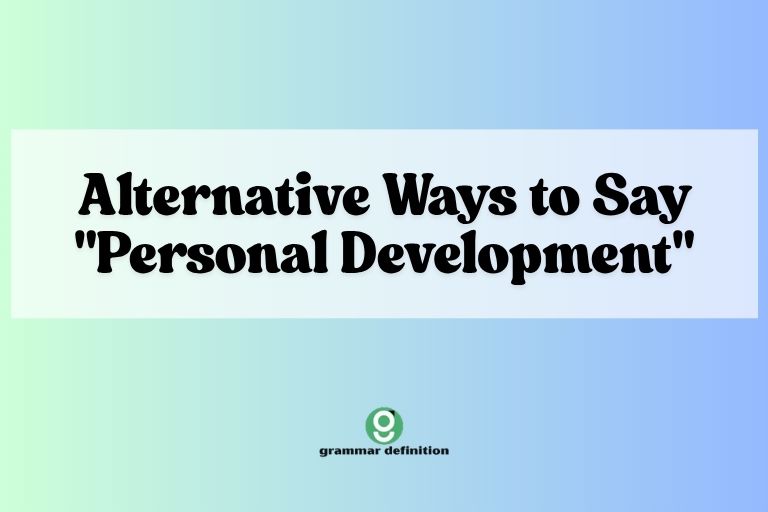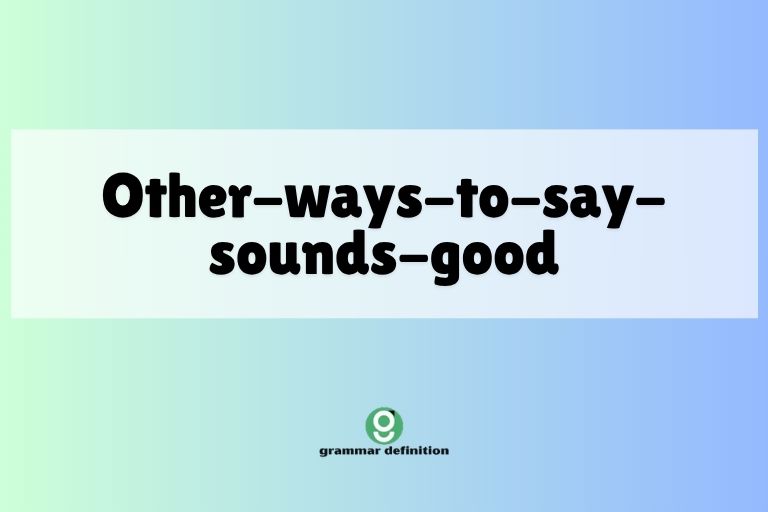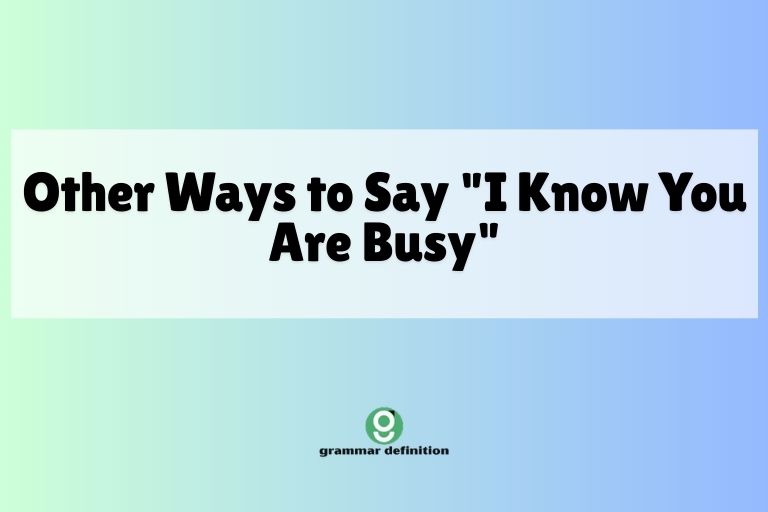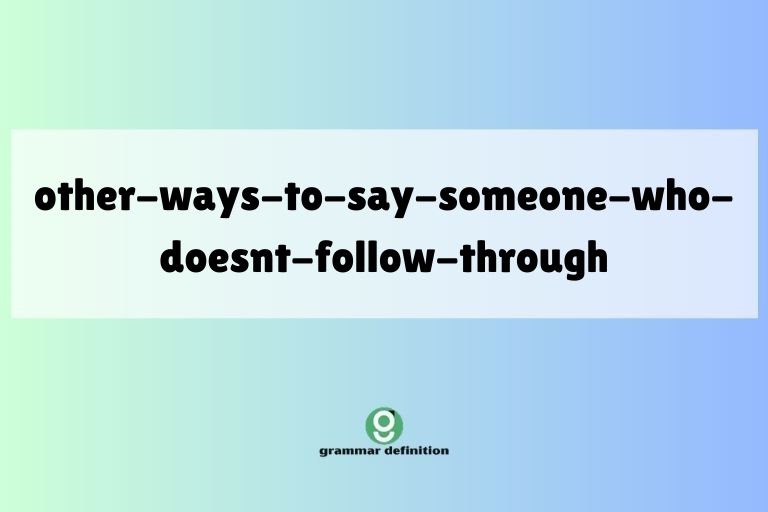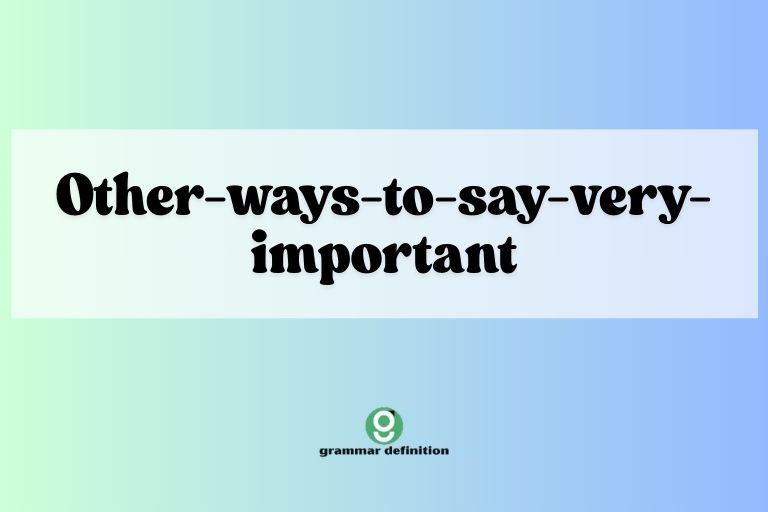Beyond “See You Then”: Diverse Ways to Say Farewell
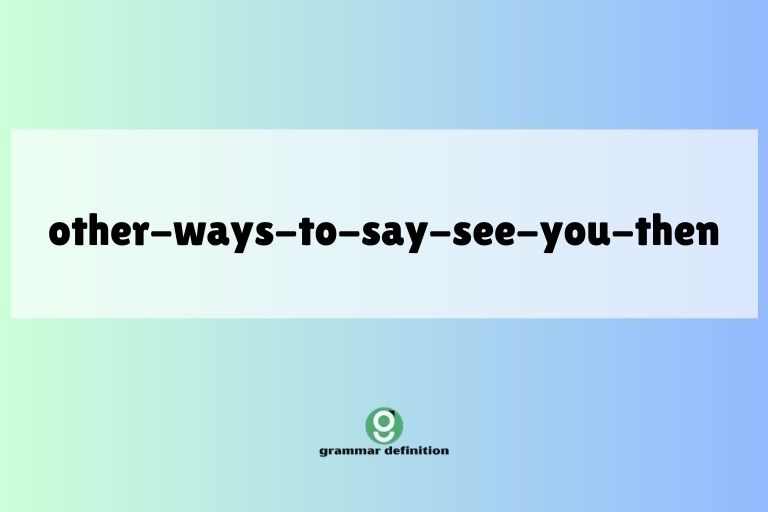
Mastering various ways to say goodbye is crucial for effective communication in English. While “See you then” is a common and perfectly acceptable phrase, relying on it exclusively can make your speech sound repetitive and lack nuance.
This article explores a wide range of alternative expressions, providing you with the vocabulary and understanding to choose the most appropriate farewell for any situation. Whether you’re chatting with friends, wrapping up a business meeting, or saying goodbye to family, learning these alternatives will enhance your conversational skills and make you a more confident English speaker.
This comprehensive guide is designed for English learners of all levels, from beginners seeking to expand their basic vocabulary to advanced speakers aiming to refine their stylistic choices. By understanding the subtle differences in meaning and context, you’ll be able to express yourself more accurately and naturally.
We’ll cover formal and informal expressions, time-specific goodbyes, and phrases that convey different levels of enthusiasm and affection. Get ready to elevate your English communication skills!
Table of Contents
- Introduction
- Definition: Beyond “See You Then”
- Structural Breakdown of Farewell Phrases
- Types and Categories of Farewell Phrases
- Examples of Alternative Farewell Phrases
- Usage Rules for Farewell Phrases
- Common Mistakes When Saying Goodbye
- Practice Exercises
- Advanced Topics in Farewell Expressions
- Frequently Asked Questions
- Conclusion
Definition: Beyond “See You Then”
The phrase “See you then” is a common and straightforward way to say goodbye, implying a future meeting at a specific time or event. However, it lacks the versatility needed for various social and professional contexts.
“Beyond ‘See you then'” refers to the extensive range of alternative expressions that English speakers use to convey farewells, each with its own subtle nuances and appropriate situations. These alternatives can express different levels of formality, affection, certainty, and anticipation.
Understanding these alternatives allows you to tailor your farewells to the specific relationship you have with the person you’re addressing, the context of the conversation, and the message you want to convey. For instance, a formal business setting requires a more professional farewell than a casual conversation with a friend.
Similarly, expressing genuine warmth and affection necessitates a different phrase than a simple acknowledgment of a future meeting.
Effectively using a variety of farewell phrases demonstrates a strong command of the English language and enhances your ability to communicate clearly and appropriately in diverse situations. It also helps you avoid sounding repetitive and makes your conversations more engaging and natural.
Mastering these alternatives is a key step in becoming a proficient and confident English speaker.
Structural Breakdown of Farewell Phrases
Farewell phrases, while seemingly simple, can be broken down into several structural categories. These categories help to understand how the phrases are constructed and how they function grammatically within a sentence or conversation.
Understanding these structures allows for more creative and effective communication.
Simple Phrases: These are the most basic farewells, often consisting of a single word or short phrase. Examples include “Goodbye,” “Bye,” “Farewell,” and “Later.” These phrases are generally versatile and can be used in various contexts, although some may be more informal than others.
Phrases with Time References: These farewells include a reference to a future meeting or event. Examples include “See you soon,” “See you tomorrow,” “See you next week,” and “Until next time.” These phrases imply an expectation of a future encounter, making them suitable for situations where you anticipate seeing the person again.
Phrases with Conditional Clauses: These farewells often include a conditional clause, expressing a hope or intention related to a future meeting or event. Examples include “Have a good day,” “Have a good weekend,” “Enjoy your evening,” and “Take care.” These phrases convey a sense of goodwill and concern for the other person’s well-being.
Phrases with Modal Verbs: Some farewells include modal verbs such as “should,” “must,” or “will,” expressing a degree of obligation or certainty. Examples include “I must be going,” “I should get going,” and “We’ll talk soon.” These phrases often indicate that the speaker needs to leave and may imply a promise of future communication.
Complex Sentences: More elaborate farewells can involve complex sentences, combining different elements to create a more nuanced expression. For example, “It was great seeing you, let’s do this again soon” combines a statement of enjoyment with an invitation for a future meeting. These phrases allow for greater expressiveness and can be tailored to the specific situation.
Types and Categories of Farewell Phrases
Farewell phrases can be categorized based on their level of formality, the context in which they are used, and the specific message they convey. Understanding these categories helps you choose the most appropriate farewell for any given situation.
General Farewells
General farewells are versatile and can be used in a wide range of situations, regardless of the level of formality or the relationship between the speakers. These are your go-to phrases when you want a simple and effective way to say goodbye.
Examples include “Goodbye,” “Bye,” “Farewell,” “So long,” and “Take care.” These phrases are widely understood and accepted, making them suitable for most social and professional contexts. “Goodbye” and “Farewell” are slightly more formal, while “Bye” and “So long” are more casual.
Time-Specific Farewells
Time-specific farewells refer to a future meeting or event, indicating when you expect to see the person again. These phrases are useful when you have a planned encounter in the near future.
Examples include “See you soon,” “See you later,” “See you tomorrow,” “See you next week,” “Until next time,” and “Catch you later.” These phrases imply an anticipation of a future meeting and are suitable for situations where you expect to see the person again relatively soon.
Formal Farewells
Formal farewells are appropriate for professional settings, interactions with superiors, or situations where you want to maintain a respectful distance. These phrases convey a sense of professionalism and politeness.
Examples include “Goodbye,” “Farewell,” “Have a good day,” “Have a good evening,” “It was a pleasure meeting you,” and “I appreciate your time.” These phrases are more formal than casual farewells and are suitable for business meetings, formal events, and interactions with people you don’t know well.
Informal Farewells
Informal farewells are suitable for casual conversations with friends, family, and close acquaintances. These phrases are more relaxed and friendly, conveying a sense of warmth and familiarity.
Examples include “Bye,” “See ya,” “Later,” “Catch you later,” “Take it easy,” “Have a good one,” and “Peace out.” These phrases are commonly used among friends and family members and are generally not appropriate for formal settings.
Affectionate Farewells
Affectionate farewells express warmth, care, and love towards the other person. These phrases are typically used with close friends, family members, and romantic partners.
Examples include “Love you,” “Miss you already,” “Take care, sweetie,” “I’ll be thinking of you,” “Hugs and kisses,” and “See you soon, my dear.” These phrases convey a strong emotional connection and are suitable for expressing affection and concern.
Conditional Farewells
Conditional farewells express a wish or hope for the other person’s well-being or enjoyment. These phrases convey a sense of goodwill and concern.
Examples include “Have a good day,” “Have a good weekend,” “Enjoy your evening,” “Have fun,” “Safe travels,” and “Drive safely.” These phrases are suitable for a wide range of situations and are a polite way to express your best wishes for the other person.
Business-Oriented Farewells
Business-oriented farewells are tailored for professional interactions, emphasizing respect, efficiency, and the continuation of a working relationship. These phrases ensure a positive and productive conclusion to meetings and conversations.
Examples include “Thank you for your time,” “I appreciate your input,” “Looking forward to our next meeting,” “Let’s stay in touch,” “Best regards,” “Sincerely,” and “Have a productive day.” These phrases are polite, professional, and convey a sense of respect and appreciation.
Examples of Alternative Farewell Phrases
This section provides extensive examples of alternative farewell phrases, organized by category, to illustrate their usage in different contexts. Understanding these examples will help you choose the most appropriate farewell for any given situation.
Table 1: General Farewell Phrases
This table illustrates various general farewell phrases that can be used in a wide range of contexts.
| Phrase | Example Sentence | Context |
|---|---|---|
| Goodbye | Goodbye, it was nice talking to you. | Formal, general |
| Bye | Bye, see you later! | Informal, general |
| Farewell | Farewell, my friend, until we meet again. | Formal, slightly dramatic |
| So long | So long, partner! | Informal, slightly old-fashioned |
| Take care | Take care and have a good day. | General, friendly |
| Have a good one | Alright, have a good one! | Informal, general |
| Have a nice day | It was great seeing you, have a nice day! | Polite, general |
| All the best | All the best in your future endeavors. | Formal, wishing well |
| Cheers | Cheers, mate! See you around. | Informal, British English |
| Adieu | Adieu, my love. | Formal, dramatic, rare |
| Until next time | It was great catching up, until next time! | General, expecting future meeting |
| Later | Later! I’m heading out. | Informal, casual |
| Catch you later | Catch you later at the gym! | Informal, expecting future meeting |
| See you | Okay, see you! | General, simple |
| Bye for now | Bye for now, I’ll call you later. | General, temporary goodbye |
| Wishing you well | Wishing you well in your recovery. | Formal, expressing good wishes |
| Peace | Peace out, man! | Informal, slang |
| Stay safe | Stay safe on your trip! | General, expressing concern |
| Keep in touch | Let’s keep in touch! | General, encouraging future communication |
| Best wishes | Best wishes for the new job! | Formal, expressing good wishes |
| Have a good day further | Thank you for the meeting, have a good day further! | General, polite |
| Have a pleasant day | It was lovely to see you, have a pleasant day! | Formal, polite |
| Good day | Good day to you, sir. | Formal, traditional |
Table 2: Time-Specific Farewell Phrases
This table provides examples of time-specific farewell phrases, indicating a future meeting or event.
| Phrase | Example Sentence | Context |
|---|---|---|
| See you soon | See you soon at the party! | General, expecting a quick reunion |
| See you later | See you later, I’m off to work. | General, expecting a future meeting |
| See you tomorrow | See you tomorrow in class! | Specific, daily routine |
| See you next week | See you next week for our meeting. | Specific, weekly event |
| Until next time | Until next time, take care! | General, no specific date |
| Catch you later | Catch you later at the coffee shop. | Informal, expecting a meeting |
| See you this evening | See you this evening for dinner. | Specific, same-day event |
| See you on Monday | See you on Monday at the office. | Specific, weekly event |
| Until then | I have to go now, until then! | General, vague future meeting |
| Speak to you soon | Speak to you soon on the phone. | General, future phone call |
| Talk to you tomorrow | Talk to you tomorrow about the project. | Specific, daily communication |
| Until we meet again | Farewell, until we meet again. | Formal, uncertain future meeting |
| See you in a bit | I’ll be back, see you in a bit. | Informal, short absence |
| See you in a while | I’m going to run errands, see you in a while. | Informal, longer absence |
| See you when I see you | I don’t know when, but see you when I see you! | Informal, uncertain future meeting |
| Until our paths cross again | It was lovely meeting you, until our paths cross again. | Formal, hoping for a future meeting |
| See you around | See you around the neighborhood. | Informal, expecting to bump into each other |
| Until our next encounter | Goodbye for now, until our next encounter. | Formal, expecting a future meeting |
| See you next time | It was a pleasure, see you next time! | General, expecting future meeting |
| See you on Friday | Great! See you on Friday then! | Specific, end of the week |
Table 3: Formal and Business Farewell Phrases
This table showcases formal and business-oriented farewell phrases suitable for professional settings.
| Phrase | Example Sentence | Context |
|---|---|---|
| Thank you for your time | Thank you for your time, I appreciate it. | Business, expressing gratitude |
| I appreciate your input | I appreciate your input on this project. | Business, valuing contribution |
| Looking forward to our next meeting | Looking forward to our next meeting to discuss the results. | Business, anticipating future collaboration |
| Let’s stay in touch | Let’s stay in touch and keep each other updated. | Business, maintaining contact |
| Best regards | Best regards to you and your team. | Business, formal closing |
| Sincerely | Sincerely, [Your Name] | Business, formal closing in writing |
| Have a productive day | Have a productive day ahead. | Business, wishing well professionally |
| It was a pleasure meeting you | It was a pleasure meeting you and discussing this opportunity. | Formal, after meeting someone new |
| I look forward to hearing from you | I look forward to hearing from you regarding the proposal. | Business, expecting a response |
| With kind regards | With kind regards, [Your Name] | Business, slightly less formal closing |
| Thank you for your assistance | Thank you for your assistance with this matter. | Formal, expressing gratitude for help |
| Have a successful week | Have a successful week ahead. | Business, wishing well for the week |
| I value our partnership | I value our partnership and look forward to future collaborations. | Business, emphasizing relationship |
| Thank you for your cooperation | Thank you for your cooperation on this project. | Business, appreciating teamwork |
| Wishing you continued success | Wishing you continued success in your endeavors. | Formal, expressing good wishes |
| I trust this was helpful | I trust this information was helpful to you. | Business, ensuring assistance |
| Best of luck | Best of luck with your presentation. | Formal, wishing well for a specific event |
| Looking forward to working with you again | Looking forward to working with you again on the next project. | Business, anticipating future collaboration |
| Please feel free to contact me | Please feel free to contact me if you have any questions. | Business, offering further assistance |
| I hope to hear from you soon | I hope to hear from you soon regarding the decision. | Business, expecting a response |
Table 4: Informal and Affectionate Farewell Phrases
This table presents informal and affectionate farewell phrases suitable for friends, family, and loved ones.
| Phrase | Example Sentence | Context |
|---|---|---|
| Love you | Love you, Mom! | Affectionate, family |
| Miss you already | Miss you already, come back soon! | Affectionate, expressing longing |
| Take care, sweetie | Take care, sweetie, drive safely. | Affectionate, concern for well-being |
| I’ll be thinking of you | I’ll be thinking of you while you’re away. | Affectionate, expressing care |
| Hugs and kisses | Hugs and kisses to the kids! | Affectionate, family |
| See you soon, my dear | See you soon, my dear, I can’t wait. | Affectionate, romantic |
| Bye, babe | Bye, babe, have a great day! | Informal, romantic |
| Later, dude | Later, dude, see you at the game. | Informal, friends |
| Catch you on the flip side | Alright, catch you on the flip side! | Informal, playful |
| Peace out | Peace out, see you tomorrow. | Informal, slang |
| Take it easy | Take it easy, man, and relax. | Informal, advice to relax |
| Have a good one | Have a good one, see you next week. | Informal, friendly |
| See ya | See ya later! | Informal, short for “see you” |
| Alright, bye | Alright, bye, talk to you soon. | Informal, casual |
| Laterz | Laterz! | Informal, slang |
| Stay cool | Stay cool, man! | Informal, slang |
| Keep in touch, okay? | Keep in touch, okay? I’ll miss you. | Informal, urging to stay connected |
| Don’t be a stranger | Don’t be a stranger, come visit soon! | Informal, urging to visit |
| Take care of yourself | Take care of yourself and be safe. | Informal, expressing concern |
| Be good | Be good while I’m gone! | Informal, playful command |
| Until we meet again | Until we meet again, my friend. | Informal, sentimental |
| Have a blast! | Have a blast at the concert! | Informal, wishing fun |
| Stay awesome! | Stay awesome! | Informal, encouraging |
Table 5: Conditional Farewell Phrases
This table provides examples of conditional farewell phrases expressing a wish or hope for the other person’s well-being.
| Phrase | Example Sentence | Context |
|---|---|---|
| Have a good day | Have a good day at work! | General, wishing well |
| Have a good weekend | Have a good weekend, relax and enjoy! | Specific, end of the week |
| Enjoy your evening | Enjoy your evening at the theater. | Specific, wishing enjoyment |
| Have fun | Have fun on your vacation! | General, wishing enjoyment |
| Safe travels | Safe travels on your trip! | Specific, wishing safety |
| Drive safely | Drive safely, the roads are icy. | Specific, concern for safety |
| Have a safe flight | Have a safe flight and call me when you land. | Specific, wishing safety during travel |
| Have a great time | Have a great time at the party! | General, wishing enjoyment |
| Have a good trip | Have a good trip to Europe! | Specific, wishing well for travel |
| Enjoy the rest of your day | Enjoy the rest of your day. | General, wishing well |
| Hope you have a good one | Hope you have a good one! | General, wishing well |
| Hope you have a good time | Hope you have a good time at the festival! | General, wishing enjoyment |
| Hope you have a lovely evening | Hope you have a lovely evening with your family. | Specific, wishing enjoyment |
| I hope things go well | I hope things go well with your interview. | Specific, wishing success |
| Wishing you the best | Wishing you the best in your new job. | Specific, wishing success |
| Have a wonderful time | Have a wonderful time on your cruise! | Specific, wishing enjoyment |
| Enjoy your meal | Enjoy your meal, bon appétit! | Specific, wishing enjoyment during a meal |
| Have a relaxing weekend | Have a relaxing weekend and unwind. | Specific, wishing relaxation |
| Hope to see you again soon | Hope to see you again soon! | General, wishing a future meeting |
| Stay well | Stay well and take care of yourself. | General, wishing good health |
Usage Rules for Farewell Phrases
Using farewell phrases correctly involves understanding the nuances of each expression and applying them appropriately based on the context, your relationship with the person you’re addressing, and the desired level of formality. Here are comprehensive usage rules to guide you.
Formality: Consider the formality of the situation. Use formal farewells like “Goodbye,” “Farewell,” and “It was a pleasure meeting you” in professional settings or when addressing superiors. Opt for informal farewells like “Bye,” “See ya,” “Later,” and “Catch you later” when speaking with friends, family, or close acquaintances.
Relationship: Tailor your farewell to your relationship with the person. Use affectionate farewells like “Love you,” “Miss you already,” and “Take care, sweetie” with close friends, family members, and romantic partners. Use general or conditional farewells like “Have a good day” or “Take care” with acquaintances or people you don’t know well.
Context: Pay attention to the context of the conversation. If you’re discussing a future meeting, use time-specific farewells like “See you soon,” “See you tomorrow,” or “See you next week.” If you’re unsure when you’ll see the person again, use general farewells like “Goodbye” or “Take care.”
Time of Day: Some farewells are time-specific. “Have a good day” is typically used during the daytime, while “Have a good evening” is used in the evening. “Have a good night” is used when someone is going to bed.
Cultural Sensitivity: Be aware of cultural differences in farewell customs. Some cultures may have specific greetings or farewells that are considered polite or customary. Researching these customs can help you avoid unintentional offense.
Clarity: Ensure your farewell is clear and unambiguous. Avoid using overly complex or obscure phrases that may be confusing to the other person. Stick to simple, straightforward expressions that are easy to understand.
Sincerity: Deliver your farewell with sincerity and genuine warmth. A heartfelt goodbye can leave a lasting positive impression. Avoid sounding rushed, dismissive, or insincere.
Appropriateness: Always consider the appropriateness of your farewell. Avoid using slang or offensive language, especially in formal settings. Choose expressions that are respectful, polite, and suitable for the situation.
Common Mistakes When Saying Goodbye
Even experienced English speakers sometimes make mistakes when saying goodbye. Here are some common errors to avoid:
Using “Goodnight” as a general farewell: “Goodnight” is typically used when someone is going to bed, not as a general way to say goodbye during the day. Incorrect: “Goodnight, it was nice seeing you!” Correct: “Goodbye, it was nice seeing you!” or “Have a good day!”
Overusing informal slang in formal settings: Using slang like “Peace out” or “Laterz” in a business meeting is inappropriate. Incorrect: “Alright, peace out, everyone!” Correct: “Thank you for your time, everyone. Have a productive day.”
Saying “Goodbye” repeatedly: Saying “Goodbye, goodbye, goodbye” can sound repetitive and awkward. Incorrect: “Goodbye, goodbye, goodbye!” Correct: “Goodbye! Take care!” or “Bye! See you soon!”
Using overly formal language in casual settings: Using phrases like “I bid you adieu” in a casual conversation can sound stilted and unnatural. Incorrect: “Well, I bid you adieu, my friend.” Correct: “See you later, buddy!”
Forgetting to acknowledge the other person’s presence: Simply walking away without saying anything is rude. Incorrect: (Silence, then walking away) Correct: “Bye! See you tomorrow!”
Mixing up “See you later” and “See you soon”: While similar, “See you soon” implies a shorter timeframe than “See you later.” Use “See you soon” if you expect to see the person again within a few days. Incorrect: “See you soon” (when you don’t expect to see them for months). Correct: “See you later” (when the timeframe is uncertain or longer).
Using “Have a good night” at the wrong time: Saying “Have a good night” in the morning or afternoon is incorrect. Incorrect: “Have a good night!” (at lunchtime). Correct: “Have a good day!” (at lunchtime).
Not adapting to cultural norms: In some cultures, a simple nod or bow is sufficient. In others, a more elaborate farewell is expected. Incorrect: (Giving a quick nod in a culture that expects a more formal goodbye). Correct: (Offering a handshake and a polite farewell in a formal setting).
Practice Exercises
Test your understanding of alternative farewell phrases with these practice exercises.
Exercise 1: Choose the Best Farewell
Select the most appropriate farewell phrase for each scenario.
| Question | Options | Answer |
|---|---|---|
| You’re leaving a business meeting. | a) Peace out! b) Thank you for your time. c) See ya! | b) Thank you for your time. |
| You’re saying goodbye to your best friend. | a) Farewell. b) Catch you later. c) I appreciate your input. | b) Catch you later. |
| You’re leaving your parents’ house after a visit. | a) Goodbye. b) Love you. c) Have a good day. | b) Love you. |
| You’re saying goodbye to a colleague at the end of the workday. | a) See you soon. b) Have a good evening. c) Stay cool. | b) Have a good evening. |
| You’re saying goodbye to someone you just met. | a) Laterz! b) It was a pleasure meeting you. c) Take it easy. | b) It was a pleasure meeting you. |
| You know you will see your friend tomorrow. | a) See you later. b) See you tomorrow. c) Until next time | b) See you tomorrow. |
| You are ending a phone call with your boss. | a) Bye. b) All the best. c) Have a good one. | b) All the best. |
| You are leaving a party early. | a) Stay awesome! b) I must be going. c) See ya! | b) I must be going. |
| You are at the airport saying goodbye to your sister who is travelling overseas. | a) See you. b) Safe travels. c) Keep in touch. | b) Safe travels. |
| You are saying goodbye to your neighbor that you see often. | a) Adieu. b) See you around. c) Best wishes. | b) See you around. |
Exercise 2: Fill in the Blanks
Complete the following sentences with appropriate farewell phrases.
| Question | Answer |
|---|---|
| “________, Dad! I’m going to school.” | Bye |
| “It was a pleasure doing business with you. ________.” | Thank you for your time |
| “________, I’ll call you when I get home.” | Love you |
| “I’m heading out. ________!” | See you later |
| “Have a great vacation! ________.” | Safe travels |
| “It’s getting late. ________, everyone!” | Goodnight |
| “________, I’ll see you at the game.” | Catch you later |
| “I’m off to bed. ________.” | Good night |
| “________! We’ll connect again soon.” | Let’s stay in touch |
| “________, I hope you have a great time.” | Have fun |
Exercise 3: Scenario-Based Responses
Write an appropriate farewell phrase for each of the following scenarios:
| Scenario | Appropriate Farewell Phrase |
|---|---|
| You are leaving a formal dinner party. | Good evening, thank you for a lovely dinner. |
| You are saying goodbye to a friend who is moving to a new city. | I’m going to miss you! Keep in touch. |
| You are ending a phone call with a customer service representative. | Thank you for your help. Have a good day. |
| You are saying goodbye to your child before they go to sleep. | Goodnight, sleep tight! |
| You are leaving a casual get-together with friends. | Later, guys! See you around. |
| You are saying goodbye to your boss after a successful project presentation. | Thank you for your guidance. I appreciate the opportunity. |
| You are ending a video call with a family member who lives far away. | Love you! Talk to you soon. |
| You are saying goodbye to a colleague at the end of a long week. | Have a great weekend! You’ve earned it. |
| You are leaving a networking event after making several new contacts. | It was a pleasure meeting you. Let’s connect on LinkedIn. |
| You are saying goodbye to a neighbor who is going on vacation. | Have a fantastic trip! Safe travels. |
Advanced Topics in Farewell Expressions
Beyond the basics, advanced English speakers can explore more nuanced and sophisticated ways to say goodbye. This includes understanding regional variations, idiomatic expressions, and the art of crafting personalized farewells.
Regional Variations: English-speaking countries and regions have their own unique farewell phrases. For example, in Australia, “Hooroo” is a common informal goodbye. In parts of the Southern United States, “Y’all take care” is frequently used. Being aware of these regional variations can enhance your cultural sensitivity and communication skills.
Idiomatic Expressions: Idiomatic farewells add color and personality to your speech. Phrases like “Fair winds and following seas” (nautical origin, wishing someone good fortune) or “Don’t let the door hit you on the way out” (sarcastic, indicating displeasure) can be effective, but should be used with caution and awareness of their connotations.
Personalized Farewell: Crafting a personalized farewell shows thoughtfulness and strengthens relationships. Instead of a generic “Goodbye,” try “It was wonderful catching up about [shared interest]. I’ll be thinking of you as you [upcoming event/trip].” This demonstrates that you were actively listening and care about the other person’s life.
Combining Phrases: Combining different farewell phrases can create a more nuanced and expressive goodbye. For example, “Take care and have a good one!” blends concern for well-being with a general well-wishing sentiment.
Non-Verbal Cues: Remember that non-verbal cues are just as important as the words you use. Maintain eye contact, smile genuinely, and use appropriate body language to convey sincerity and warmth. A sincere handshake or hug can reinforce your farewell and leave a positive impression.
Expressing Gratitude: If someone has done something for you, express your gratitude in your farewell. “Thank you so much for your help today. I really appreciate it. Have a great evening!” This shows that you value their assistance and strengthens your connection.
Acknowledging Future Interaction: If you have plans to see or speak with the person again soon, acknowledge this in your farewell. “Looking forward to our meeting next week. Have a productive few days until then!” This reinforces your commitment and builds anticipation for the future interaction.
Frequently Asked Questions
Is it rude to just say “Bye”?
No, saying “Bye” is generally considered acceptable in informal settings with friends, family, and close acquaintances. However, in more formal situations, it’s best to use a more polite farewell phrase such as “Goodbye” or “Have a good day.”
What’s the difference between “See you later” and “See you soon”?
“See you later” is a general farewell phrase that implies you will see the person again at some point in the future, but the exact timing is not specified. “See you soon” implies that you expect to see the person again relatively quickly, typically within a few days.
When should I use “Farewell”?
“Farewell” is a more formal and somewhat dramatic farewell phrase. It is appropriate for situations where you want to convey a sense of finality or when you are unsure if you will see the person again.
It is also sometimes used in theatrical or literary contexts.
Is it okay to use slang farewells in professional settings?
Generally, it is not appropriate to use slang farewells in professional settings. Stick to more formal and polite phrases such as “Thank you for your time” or “Have a productive day.” However, if you have a very casual relationship with your colleagues, a more informal farewell such as “Take care” may be acceptable.
How can I make my farewells more personal and sincere?
To make your farewells more personal and sincere, try to tailor your phrase to the specific situation and your relationship with the person. Use their name, express genuine gratitude, and offer a specific well-wishing sentiment.
For example, instead of simply saying “Goodbye,” you could say “Thank you for your help today, [Name]. I really appreciate it.
Have a great evening!”
What are some good farewell phrases to use when ending a phone call?
Some good farewell phrases to use when ending a phone call include “Thank you for your time,” “I appreciate your help,” “Have a good day,” “I look forward to hearing from you,” and “Goodbye.”
How do I say goodbye in an email?
Common email closings that serve as farewells include: “Sincerely,” “Best regards,” “Kind regards,” “Thank you,” “Best,” and “Warmly.” The choice depends on the formality of the email and your relationship with the recipient.
What is the most professional way to say goodbye in a business email?
The most professional ways to say goodbye in a business email are “Sincerely,” “Best regards,” and “Kind regards.” These closings are formal, polite, and suitable for most professional communications.
What are some fun and quirky ways to say goodbye?
Some fun and quirky ways to say goodbye include “Catch you on the flip side,” “Later, gator,” “Adios, amigos,” “Toodles,” and “Peace out.” However, use these phrases with caution and only in appropriate, informal settings.
Conclusion
Mastering the art of farewells is an essential aspect of effective English communication. By expanding your repertoire beyond the simple “See you then,” you can express yourself more accurately, appropriately, and engagingly in a wide range of social and professional contexts.
This article has provided you with a comprehensive guide to alternative farewell phrases, covering various types, usage rules, common mistakes, and advanced topics.
Remember to consider the formality of the situation, your relationship with the person you’re addressing, and the specific message you want to convey when choosing a farewell phrase. Practice using these phrases in your daily conversations and pay attention to how native English speakers use them.
With time and effort, you’ll become more confident and proficient in saying goodbye in diverse and meaningful ways. Keep exploring, keep practicing, and continue to refine your English communication skills!

